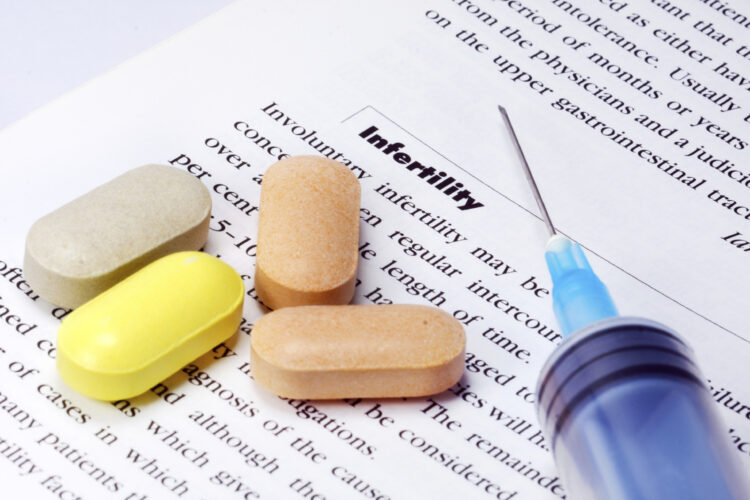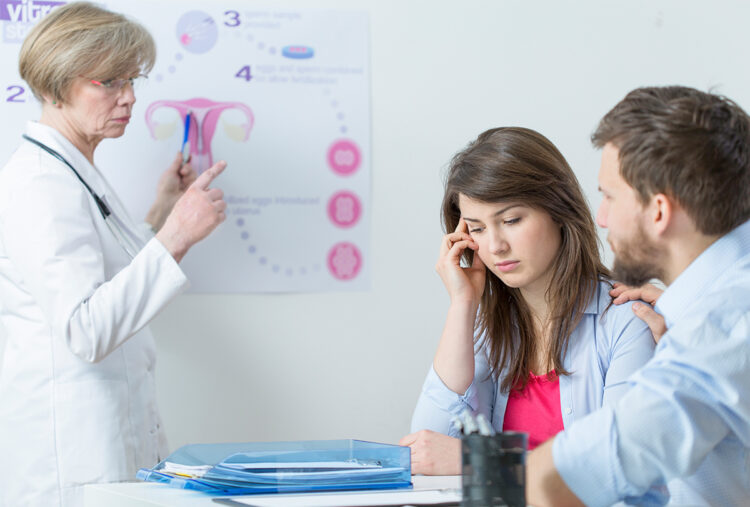It’s estimated in the U.S. that anywhere from 10 to 15% of couples are infertile. The definition of infertility can technically vary, but generally, it refers to a situation where you have been having unprotected sex for at least a year, frequently, and not getting pregnant.
There can be many issues that contribute to infertility, but there are also often treatment options available.
Understanding underlying causes is an important part of treatment.
The following are some of the most common causes of female infertility.
Page Contents
General Risk Factors

img source: health.harvard.edu
There are certain things that can be general risk factors for female infertility that aren’t specific conditions in and of themselves. These include:
- Age: When you reach your mid-30s as a woman, the rate of follicle loss starts to go up. This means eggs that are of poorer quality and fewer of them. It can be harder to get pregnant, and the risk of miscarriage goes up, according to rmanetwork.com.
- Weight: If you’re very over or underweight, it can affect ovulation. Maintaining a healthy BMI could increase how frequently you ovulate, raising the chances of pregnancy.
- Smoking: If you smoke, it can damage your fallopian tubes and cervix. It can also increase the risk of ectopic pregnancy and miscarriage. It may lower your egg counts prematurely and age your ovaries.
- Various diseases: Certain transmitted infections can cause damage to the fallopian tubes.
- Alcoholic beverage: Drinking too much can affect fertility. If you’re actively trying to get pregnant, it may be a good idea to cut out drinking altogether.
Reproductive Age
The impact of age was mentioned briefly above, and it can be one of the biggest barriers to fertility.
When you’re born, you have almost one million eggs. By the time you’re in your early 30s, that number has gone down to less than half of that.
That’s paired with the additional challenge of lower-quality eggs as you age.
If you’re in your 40s, it’s estimated that almost 40% of your eggs are low quality because of things related to age or genetic imbalances.
Polycystic Ovary Syndrome (PCOS)

img source: cosmopolitan.com
PCOS is thought to affect 1 in 10 women who are of childbearing age. When you have PCOS, there are metabolism problems and hormonal imbalances that can affect your general health and also lead to infertility.
PCOS is caused by an imbalance of women’s reproductive hormones. When you have hormonal imbalances, then your egg may not develop the way it should, or it might not be released during ovulation.
Women with PCOS often have irregular or missed periods.
Other symptoms of PCOS can include having too much hair on places like the face and chin, acne, thinning hair, weight gain, and darkening of the skin, particularly in the groin, along the creases of the neck and under the breasts.
The exact cause of PCOS isn’t known at this point but may include a few factors. Certain genes may be associated with PCOS. If a woman has too much androgen produced by the ovaries, this can also be a contributing factor.
Low-grade inflammation may play a role. Low-grade inflammation might stimulate polycystic ovaries to produce androgens. Excess insulin can be part of developing PCOS additionally.
While there isn’t a definitive test for PCOS, a doctor will usually start with a series of questions as part of their evaluation. A doctor might then recommend a pelvic exam and blood tests, as well as an ultrasound.
Treatment for PCOS may include lifestyle changes such as weight loss and exercise. There are some medications that can help too.
Endometriosis
The condition of endometriosis is another common cause of female infertility. With this condition, the tissue that normally lines the inside of your uterus grows outside of it. It affects the ovaries, fallopian tubes, and the tissue that lines the pelvis.
The tissue then thickens, breaks down, and bleeds as typical endometrial tissue does. However, the tissue can’t leave your body so it gets trapped which can lead to cysts, scar tissue, and painful adhesions.
Endometriosis can also lead to infertility, and there are instances where people are first diagnosed with the condition after seeing a doctor for infertility.
Fibroids

img source: markfibroidcare.com
A uterine fibroid is an abnormal growth that develops on the uterus. These are tumors that can grow large and cause heavy periods and pain, although many times, they don’t cause any symptoms. They’re usually benign.
Fibroids can develop because of factors like hormones, family history, and pregnancy itself. Not all fibroids affect fertility, but some can.
For example, a specific type, called submucosal fibroids, can increase the risk of pregnancy loss or infertility.
Autoimmune Disorders
An autoimmune disease is one where your body’s immune system is overly active.
Typically, our immune system protects us by breaking down harmful invaders. When you have an autoimmune disorder, your immune system may create antibodies that end up attacking healthy tissue.
There are complex associations between autoimmune disorders and infertility, but they can put you at a higher risk of infertility.
The immune system might not recognize the embryo, and it could attack it. This can cause miscarriages.
Blocked Fallopian Tubes

img source; emedihealth.com
If a woman has blocked fallopian tubes, infertility may occur.
Fallopian tubes help eggs travel from the ovaries to the uterus. They also play a role in helping sperm travel up from the womb.
As a result, they’re where most eggs are fertilized. If the fallopian tube is damaged for any reason, then scar tissue can block them.
There are a variety of causes of blocked fallopian tubes, including:
- A history of pelvic infections
- Burst appendix in the past
- Having had certain sexually transmitted diseases like chlamydia or gonorrhea
- A history of abdominal surgery
- Endometriosis
There are many different causes of female infertility. The first step you should take if you think you have a fertility issue is talking to your doctor, who can begin doing tests to potentially figure out the cause or combination of causes. From there, you may be able to receive treatment that can help.





